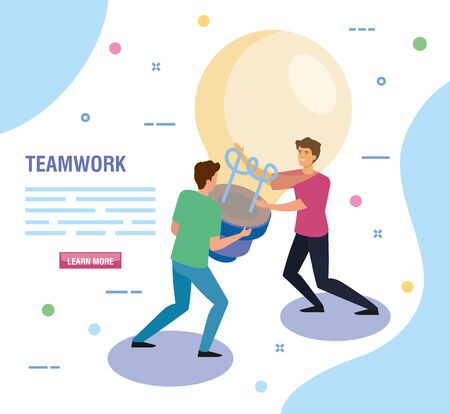Defining Emotional Intelligence in the Modern Workplace
In today’s American workplaces, where diversity and rapid change are the norms, emotional intelligence—or EQ—is more important than ever. But what exactly is emotional intelligence, and why does it matter so much for both leaders and team members?
What Is Emotional Intelligence?
Emotional intelligence is the ability to recognize, understand, and manage our own emotions while also being able to recognize, understand, and influence the emotions of others. In a professional setting, this means being aware of how your feelings affect your work and how you interact with colleagues from different backgrounds.
Key Components of Emotional Intelligence
| Component | Description | Why It Matters at Work |
|---|---|---|
| Self-Awareness | Understanding your own emotions, strengths, and weaknesses | Helps you stay grounded and make better decisions under pressure |
| Self-Management | Controlling impulsive feelings and behaviors | Keeps team dynamics positive even when challenges arise |
| Social Awareness | Recognizing emotions in others (empathy) | Builds stronger relationships across diverse teams |
| Relationship Management | Managing interactions successfully to move people in the desired direction | Improves collaboration and reduces workplace conflict |
The Role of EQ in America’s Diverse Workplaces
The modern U.S. workforce is a blend of different generations, cultures, and communication styles. High EQ enables individuals to bridge these differences effectively. For example, a leader with strong social awareness can spot when a team member feels left out during meetings and take steps to include them. Likewise, employees with good self-management skills can handle tight deadlines without spreading stress to their coworkers.
Real-World Example:
An American tech company introduced EQ training for all new managers. Within six months, they saw improved teamwork scores on employee surveys and a noticeable drop in project delays caused by miscommunication. This shows how emotional intelligence directly influences team performance in real-life situations.
2. Core Components of Emotional Intelligence
Understanding the Building Blocks of EQ in American Teams
Emotional Intelligence (EQ) isnt just a buzzword—its a set of real skills that can boost team performance in the workplace. In U.S. business culture, where collaboration and open communication are highly valued, mastering the core components of EQ can make a significant difference for both individual growth and team success. Lets break down the four main elements of EQ and see how they play out in American office settings.
Key Elements of Emotional Intelligence
| Component | Description | American Business Example |
|---|---|---|
| Self-Awareness | Recognizing your own emotions and how they affect your work and relationships. | A project manager notices theyre frustrated after a tough client call. Instead of ignoring it, they take a short walk to clear their mind before meeting with their team, preventing negative feelings from impacting others. |
| Self-Regulation | The ability to manage impulses, stay calm under pressure, and remain flexible in changing situations. | An account executive receives critical feedback during a team meeting but responds professionally, asking clarifying questions instead of reacting defensively. This sets a positive example for colleagues. |
| Social Awareness | Understanding the emotions, needs, and concerns of others; picking up on social cues within the team or company culture. | A team lead notices that a coworker is unusually quiet during brainstorming sessions. They privately check in to see if the teammate needs support or feels comfortable sharing ideas. |
| Relationship Management | Building healthy relationships through clear communication, conflict resolution, and teamwork. | A department head mediates between two team members who disagree on project priorities, helping them find common ground and fostering an environment where everyone feels heard. |
The Impact on Team Performance
When these components are present in American teams, you’ll often notice smoother collaboration, faster problem-solving, and higher morale. For managers aiming for promotion or employees wanting to stand out, developing these EQ skills can be a game-changer. High-performing teams aren’t just technically skilled—they’re emotionally smart too.

3. How Emotional Intelligence Impacts Team Collaboration
Understanding the Role of Emotional Intelligence in American Teams
Emotional intelligence (EQ) is more than just a buzzword in today’s workplaces across the United States. For managers and team members alike, EQ is a crucial factor that shapes how effectively teams communicate, resolve conflicts, embrace diversity, and spark creativity. Let’s break down how emotional intelligence directly impacts these four core aspects of team collaboration.
Direct Effects of EQ on Key Aspects of Collaboration
| Aspect | Impact of High EQ | Typical Results in U.S. Teams |
|---|---|---|
| Communication | Team members with high EQ listen actively, express themselves clearly, and pick up on nonverbal cues. | Smoother meetings, fewer misunderstandings, and more open feedback loops. |
| Conflict Resolution | EQ enables people to stay calm under pressure and see others’ perspectives before reacting. | Conflicts are addressed early; disagreements turn into constructive conversations instead of personal clashes. |
| Inclusion | Empathy—a key part of EQ—helps team members recognize and value diverse backgrounds and opinions. | A more inclusive environment where everyone feels heard and engaged, leading to higher morale. |
| Creativity | High-EQ teams feel safe to share new ideas without fear of judgment or ridicule. | More brainstorming sessions, out-of-the-box thinking, and innovative solutions to problems. |
The American Perspective: Why EQ Matters for Team Success
In American workplace culture, teams are often built around collaboration and mutual respect. Managers who focus on emotional intelligence can set the tone for their groups—making it easier for everyone to contribute their best work. For those looking to move up the career ladder, showing strong EQ skills is a clear signal to leaders that you’re ready for bigger responsibilities. Whether you’re managing a remote team spread across different states or working face-to-face in the office, developing emotional intelligence is one of the most practical steps you can take to boost both your team’s performance and your own career growth.
4. The Link Between Leaders’ Emotional Intelligence and Team Performance
Why Emotional Intelligence Matters for Leaders
Leaders with high emotional intelligence (EQ) have the unique ability to recognize, understand, and manage both their own emotions and those of their team members. In today’s fast-paced American workplace, these skills are more important than ever. When leaders demonstrate strong EQ, they set the tone for open communication, empathy, and trust within their teams.
How High EQ Leaders Foster Stronger Performance
Leaders who show high emotional intelligence naturally motivate their teams to achieve better results. Here’s how:
EQ Skill |
Team Impact |
|---|---|
| Self-awareness | Leaders acknowledge strengths and weaknesses, setting realistic goals and modeling honest self-reflection. |
| Empathy | Team members feel heard and valued, increasing trust and willingness to contribute ideas. |
| Social Skills | Smoother collaboration, fewer misunderstandings, and more productive meetings. |
| Self-regulation | Leaders manage stress well, leading to calm responses during challenges instead of emotional outbursts. |
| Motivation | Teams feel inspired by a leader’s positive attitude, driving higher performance and commitment. |
Boosting Engagement Through Emotional Intelligence
Employee engagement is directly linked to how connected team members feel to their leader and the organization. In American workplaces, where people value autonomy and recognition, emotionally intelligent leaders stand out because they:
- Encourage open feedback without fear of judgment.
- Acknowledge individual achievements and contributions.
- Create a sense of belonging by understanding diverse perspectives.
- Promote work-life balance, showing genuine concern for employee well-being.
This kind of environment makes employees more likely to go the extra mile and stay invested in team success.
Improving Retention with High-EQ Leadership
Retention is a major concern for U.S. organizations facing high turnover rates. Leaders who consistently practice emotional intelligence help reduce this issue by:
- Building strong relationships based on mutual respect.
- Resolving conflicts quickly before they escalate.
- Supporting professional growth through coaching and mentorship.
- Cultivating a positive team culture where everyone feels safe to share concerns or mistakes without fear of punishment.
The result? Employees are more likely to stay loyal to teams led by high-EQ leaders because they feel understood, appreciated, and supported in their career journey.
5. Practical Strategies for Building Team Emotional Intelligence
Why Emotional Intelligence Matters for Teams
Emotional intelligence (EQ) is more than just a personal trait; it’s a crucial factor that shapes how teams communicate, solve problems, and achieve goals. Teams with high EQ tend to outperform those without it, especially when facing challenges or navigating change. Let’s explore how both managers and employees can actively boost EQ on their teams.
Actionable Tips for Managers and Employees
1. Invest in Training Opportunities
Offer team workshops or bring in experts to run interactive sessions on self-awareness, empathy, conflict resolution, and stress management. Online courses and webinars are also accessible ways to build foundational EQ skills for everyone on the team.
2. Create Feedback Loops
Encourage open feedback within the team, both peer-to-peer and manager-to-team. Establish regular check-ins where team members can express concerns, share wins, or talk about what they need to be more effective. Make sure feedback is specific, actionable, and focused on growth—not blame.
| Feedback Practice | How It Helps |
|---|---|
| Weekly Team Retrospectives | Identifies what’s working and areas for improvement in real-time |
| One-on-One Check-Ins | Builds trust and gives space for personal development conversations |
| 360-Degree Reviews | Provides holistic insights from different perspectives on the team |
3. Lead by Example: Leadership Modeling
Managers set the tone for emotional intelligence in the workplace. Demonstrate active listening during meetings, show empathy when handling conflicts, and be transparent about your own learning process around EQ. When leaders model these behaviors, employees feel safer and more motivated to follow suit.
4. Encourage Self-Reflection and Personal Growth
Promote regular self-reflection through tools like journaling or digital assessments. Encourage employees to identify their triggers, strengths, and areas where they can improve their emotional responses at work.
5. Recognize and Reward EQ Behaviors
Acknowledge team members who show strong emotional intelligence—whether that’s diffusing a tense situation, supporting a struggling teammate, or giving constructive feedback. Small rewards or shout-outs in meetings can reinforce the importance of EQ-driven actions.
| EQ Behavior | Recognition Example |
|---|---|
| Mediating Conflict Fairly | Praise during all-hands meeting or internal newsletter mention |
| Offering Support During Stressful Times | Gift card or “Thank You” note from leadership |
| Taking Initiative to Improve Team Morale | Special project opportunity or public acknowledgment |
The Manager’s Role in Sustaining Team EQ Growth
Sustaining emotional intelligence isn’t a one-and-done effort—it requires ongoing attention from both leaders and individual contributors. By making EQ development part of your team’s routine through training, feedback, role modeling, self-reflection, and recognition, you create an environment where high performance becomes the norm.
6. Real Life Case Studies in American Organizations
Case Study 1: Google’s Project Aristotle
Google launched Project Aristotle to identify what makes teams successful. The research showed that the most effective teams were those where members demonstrated high emotional intelligence (EQ). Psychological safety, a key element of EQ, allowed team members to speak up, share ideas, and admit mistakes without fear. As a result, these teams reported higher productivity and satisfaction.
| Company | EQ Strategy | Team Outcome |
|---|---|---|
| Fostering psychological safety | Increased innovation and productivity |
Case Study 2: Southwest Airlines’ People-First Approach
Southwest Airlines is well known for its strong company culture centered around emotional intelligence. Leaders are trained to recognize and respond empathetically to employee needs. By prioritizing open communication and support, Southwest has maintained high employee engagement and low turnover rates, even in challenging times.
| Company | EQ Focus Area | Resulting Team Performance |
|---|---|---|
| Southwest Airlines | Empathetic leadership & open feedback | Loyalty and resilience among teams |
Case Study 3: Johnson & Johnson’s Leadership Development Program
Johnson & Johnson invested in EQ training for their managers through their Leadership Development Program. Managers learned how to manage stress, resolve conflicts, and motivate diverse teams more effectively. Post-training data revealed significant improvements in team collaboration and overall performance metrics.
| Company | EQ Investment Area | Tangible Results |
|---|---|---|
| Johnson & Johnson | Leadership EQ training | Stronger collaboration and higher output |
Key Takeaways from These Case Studies
- Cultural fit: American companies integrate EQ into their unique work cultures for maximum impact.
- Tangible results: Measurable improvements in innovation, retention, and productivity can be traced back to focused EQ efforts.
- Sustainable success: Teams with high emotional intelligence adapt faster and perform better during change or crisis.


